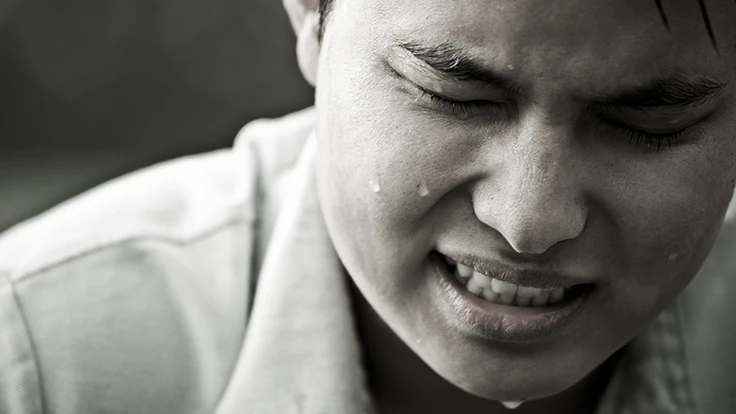
Anyone working outdoors, like those who earn their living maintaining golf courses, needs to be familiar with the signs and risks of heat-related illnesses.
Dr. Sean A. Cupp, a sports medicine specialist with University Hospitals in Cleveland, offers insights on the warning signs to look for in your maintenance crew, and why people are at greater risk for heat-related illnesses than others.
What are the symptoms of heat exhaustion and heatstroke?
Dr. Cupp: The symptoms are going to be very similar between the two. They include a rapid heart rate, hyperventilation, heavy sweating, starting to experience a headache, dizziness, fatigue, irritability, anxiety or confusion, and possibly nausea, vomiting, and chills.
The main differences between the two is the core body temperature When it becomes equal to or higher than 105 degrees, that is heatstroke. If it's 104 degrees or below with those symptoms, that's what we would label as heat exhaustion.
We look at this as a continuum, beginning with heat cramps and progressing to heat exhaustion to heat stroke and then potentially death.
Are there factors that make certain people more susceptible to heat-related illnesses than others?
There are some individual risk factors that really contribute to this, including obesity, dehydration, fatigue, having a low fitness level, having a recent heat illness or current illness, and not being acclimated to the environment. And then there are multiple medications which can also put you at a higher risk.

How important is hydration and rehydration?
We really stress rehydration. What's really important is to have 16-18 ounces of fluids about two hours before you start your activity and then another eight ounces about 30 minutes before you start your activity.
When you start talking about getting "tanked up" the night before, that's not a bad thing. But pretty much everything you put in your going to lose through urination before the next day. But it's not a bad thing to have a full tank.
The thing you don't want to do is drink a lot of alcohol the night before, or a lot of caffeine the morning of and then go spend the day out in the heat because both of those are diuretics that will dehydrate you.
In addition to water, a lot of people rely on electrolyte drinks such as Gatorade. How effective are those drinks in preventing dehydration?
I recommend if your activity is moderate to intense and lasts over an hour, then you should probably replace fluid with something that has salt and sugar in it -- like Powerade or Gatorade. If the activity lasts an hour or less, water is the best thing to replace fluid loss. But for anything over an hour you should probably replace 12-24 ounces per hour of activity. If you're going to be out for four hours, then you probably are going to want 48-96 ounces of (replacement fluids), a minimum 50 percent of that being Gatorade and the other 50 percent could be water.
Can heat illness occurs when the weather is not oppressively hot?
Yes, it does not have to be an extremely hot environment. We gain heat and lose heat through conduction and radiation. There are multiple ways our bodies can heat up and cool off.
If you're in a moderate-temperature environment with high humidity you're at a much greater risk of having a heat illness than if you were in a low-humidity, high-heat environment. At that point, you're thinking “I need to be replacing my fluids.” If you're in a high-humidity environment with a moderate temperature, you're probably not going to think about replacing your fluids as much.
Are there certain medications that can accelerate the dehydration process?
The big ones are anything that is going to decrease your sweating output and alters how your body produces heat. The big ones are antihistamines. A lot of people take those when they go out onto a golf course and work outside to control allergy symptoms.
Caffeine, any type of diuretic, any type of water pill. A lot of blood-pressure pills are diuretics that help the body get rid of excess fluid.
A lot of people -- especially athletes -- are being treated for ADHD. Those (medications) are basically stimulants and the stimulants can alter the heat production of the body.
Dr. Sean A. Cupp, a sports medicine specialist with University Hospitals in Cleveland, offers insights on the warning signs to look for in your maintenance crew, and why people are at greater risk for heat-related illnesses than others.
What are the symptoms of heat exhaustion and heatstroke?
Dr. Cupp: The symptoms are going to be very similar between the two. They include a rapid heart rate, hyperventilation, heavy sweating, starting to experience a headache, dizziness, fatigue, irritability, anxiety or confusion, and possibly nausea, vomiting, and chills.
The main differences between the two is the core body temperature When it becomes equal to or higher than 105 degrees, that is heatstroke. If it's 104 degrees or below with those symptoms, that's what we would label as heat exhaustion.
We look at this as a continuum, beginning with heat cramps and progressing to heat exhaustion to heat stroke and then potentially death.
Are there factors that make certain people more susceptible to heat-related illnesses than others?
There are some individual risk factors that really contribute to this, including obesity, dehydration, fatigue, having a low fitness level, having a recent heat illness or current illness, and not being acclimated to the environment. And then there are multiple medications which can also put you at a higher risk.

How important is hydration and rehydration?
We really stress rehydration. What's really important is to have 16-18 ounces of fluids about two hours before you start your activity and then another eight ounces about 30 minutes before you start your activity.
When you start talking about getting "tanked up" the night before, that's not a bad thing. But pretty much everything you put in your going to lose through urination before the next day. But it's not a bad thing to have a full tank.
The thing you don't want to do is drink a lot of alcohol the night before, or a lot of caffeine the morning of and then go spend the day out in the heat because both of those are diuretics that will dehydrate you.
In addition to water, a lot of people rely on electrolyte drinks such as Gatorade. How effective are those drinks in preventing dehydration?
I recommend if your activity is moderate to intense and lasts over an hour, then you should probably replace fluid with something that has salt and sugar in it -- like Powerade or Gatorade. If the activity lasts an hour or less, water is the best thing to replace fluid loss. But for anything over an hour you should probably replace 12-24 ounces per hour of activity. If you're going to be out for four hours, then you probably are going to want 48-96 ounces of (replacement fluids), a minimum 50 percent of that being Gatorade and the other 50 percent could be water.
Can heat illness occurs when the weather is not oppressively hot?
Yes, it does not have to be an extremely hot environment. We gain heat and lose heat through conduction and radiation. There are multiple ways our bodies can heat up and cool off.
If you're in a moderate-temperature environment with high humidity you're at a much greater risk of having a heat illness than if you were in a low-humidity, high-heat environment. At that point, you're thinking “I need to be replacing my fluids.” If you're in a high-humidity environment with a moderate temperature, you're probably not going to think about replacing your fluids as much.
Are there certain medications that can accelerate the dehydration process?
The big ones are anything that is going to decrease your sweating output and alters how your body produces heat. The big ones are antihistamines. A lot of people take those when they go out onto a golf course and work outside to control allergy symptoms.
Caffeine, any type of diuretic, any type of water pill. A lot of blood-pressure pills are diuretics that help the body get rid of excess fluid.
A lot of people -- especially athletes -- are being treated for ADHD. Those (medications) are basically stimulants and the stimulants can alter the heat production of the body.
Get curated news on YOUR industry.
Enter your email to receive our newsletters.Loading...
Latest from Golf Course Industry
- SePRO hires new technical specialist
- Plant Fitness adds Florida partner
- LOKSAND opens North American office
- Standard Golf announces new product lineup for 2025
- The Salt Pond taps Troon for management
- KemperSports selected to manage Swansea Country Club
- From the publisher’s pen: Grab that guide
- Introducing our April 2025 issue





